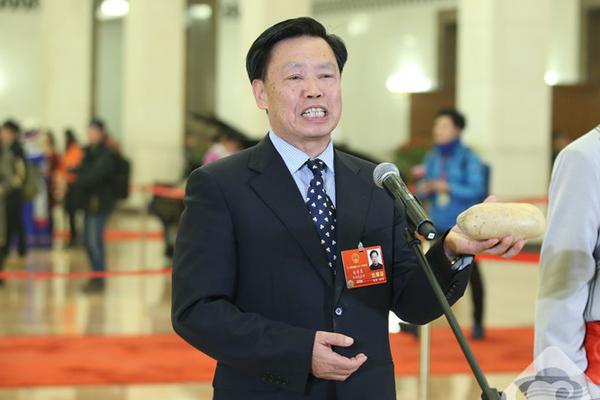
1. The five functions of the operating system are processor management, memory management, device management, file management and job management. Processor management The most basic function of processor management is to process interrupt events. After configuring the operating system, various events can be processed.
2. The main function of the computer operating system is process management, and its work is mainly process scheduling. In the case of a single user and a single taskNext, the processor is only monopolized by one user's task, and the process management work is very simple.
3. Operating System (abbreviation: OS) is a group of interrelated system software programs that supervise and control computer operation, use and run hardware, software resources and provide public services to organize user interaction.
4. Five major management functions of the operating system: (1) Job management: including tasks, interface management, human-computer interaction, graphical interface, voice control and virtual reality, etc. ( 2) File management: also known as information management. ( 3) Storage management: The essence is the management of storage "space", which mainly refers to the management of the main memory.
Any information system has five basic functions, namely: information collection and recording (input); information storage; information processing; information transmission; information output .
According to the functional introduction of the information system, the information system has five basic functions: input, storage, processing, output and control. Different functions have different functions, such as input function: the input function of the information system is determined by the purpose to be achieved by the system, the ability of the system and the permission of the information environment.
Five basic functions of the information system: input, storage, processing, output and control. Input function: The input function of the information system is determined by the purpose to be achieved by the system, the ability of the system and the permission of the information environment.Storage function: Storage function refers to the ability of the system to store various information and data. Mainly including: statistical functions.
The operating system has five functions: processor management: mainly controls and manages the work of the CPU. Storage management: mainly allocate and manage memory. Device management: mainly manage basic input and output devices. File management: responsible for the organization, storage, operation and protection of computer files.
The functions of the computer operating system include: processor management, memory management, device management, file management, job management and other functional modules. Processor management. The most basic function of processor management is to handle interrupt events. The processor can only detect interrupt events and generate interrupts and cannot process them.
The main function of the computer operating system is process management, and its main work is process scheduling. In the case of a single user and a single task, the processor is only monopolized by one user's task, and the work of process management is very simple.
The main functions of the operating system are process and processor management, job management, storage management, device management and file management, as follows: process and processor management. Because the execution of the program must rely on the processor, only one program flow can be processed and executed at any time. Homework management.
I) Processor management The most basic function of processor management is to handle interrupt events. The processor can only detect interrupt events and generate interrupts, and cannot handle these interrupt events. After configuring the operating system, all types of events can be handled.Another function of processor management is processor scheduling.
Five management functions of the operating system: job management: including tasks, interface management, human-computer interaction, graphical interface, voice control and virtual reality, etc. File management: also known as information management. Storage management: The essence is the management of storage "space", which mainly refers to the management of the main memory.

The storage management function of the operating system is to manage memory resources. It mainly realizes memory allocation and recovery, storage protection and memory expansion. The device management of the device management operating system is responsible for allocating and recycling external devices, and controlling external devices to operate according to the requirements of user programs.
The functions of the computer operating system include: processor management, memory management, device management, file management, job management and other functional modules. Processor management. The most basic function of processor management is to handle interrupt events. The processor can only detect interrupt events and generate interrupts and cannot process them.
The five functions of the operating system are processor management, memory management, device management, file management and job management.Processor management The most basic function of processor management is to process interrupt events. After configuring the operating system, various events can be processed.
Hearthstone arena-APP, download it now, new users will receive a novice gift pack.
1. The five functions of the operating system are processor management, memory management, device management, file management and job management. Processor management The most basic function of processor management is to process interrupt events. After configuring the operating system, various events can be processed.
2. The main function of the computer operating system is process management, and its work is mainly process scheduling. In the case of a single user and a single taskNext, the processor is only monopolized by one user's task, and the process management work is very simple.
3. Operating System (abbreviation: OS) is a group of interrelated system software programs that supervise and control computer operation, use and run hardware, software resources and provide public services to organize user interaction.
4. Five major management functions of the operating system: (1) Job management: including tasks, interface management, human-computer interaction, graphical interface, voice control and virtual reality, etc. ( 2) File management: also known as information management. ( 3) Storage management: The essence is the management of storage "space", which mainly refers to the management of the main memory.
Any information system has five basic functions, namely: information collection and recording (input); information storage; information processing; information transmission; information output .
According to the functional introduction of the information system, the information system has five basic functions: input, storage, processing, output and control. Different functions have different functions, such as input function: the input function of the information system is determined by the purpose to be achieved by the system, the ability of the system and the permission of the information environment.
Five basic functions of the information system: input, storage, processing, output and control. Input function: The input function of the information system is determined by the purpose to be achieved by the system, the ability of the system and the permission of the information environment.Storage function: Storage function refers to the ability of the system to store various information and data. Mainly including: statistical functions.
The operating system has five functions: processor management: mainly controls and manages the work of the CPU. Storage management: mainly allocate and manage memory. Device management: mainly manage basic input and output devices. File management: responsible for the organization, storage, operation and protection of computer files.
The functions of the computer operating system include: processor management, memory management, device management, file management, job management and other functional modules. Processor management. The most basic function of processor management is to handle interrupt events. The processor can only detect interrupt events and generate interrupts and cannot process them.
The main function of the computer operating system is process management, and its main work is process scheduling. In the case of a single user and a single task, the processor is only monopolized by one user's task, and the work of process management is very simple.
The main functions of the operating system are process and processor management, job management, storage management, device management and file management, as follows: process and processor management. Because the execution of the program must rely on the processor, only one program flow can be processed and executed at any time. Homework management.
I) Processor management The most basic function of processor management is to handle interrupt events. The processor can only detect interrupt events and generate interrupts, and cannot handle these interrupt events. After configuring the operating system, all types of events can be handled.Another function of processor management is processor scheduling.
Five management functions of the operating system: job management: including tasks, interface management, human-computer interaction, graphical interface, voice control and virtual reality, etc. File management: also known as information management. Storage management: The essence is the management of storage "space", which mainly refers to the management of the main memory.

The storage management function of the operating system is to manage memory resources. It mainly realizes memory allocation and recovery, storage protection and memory expansion. The device management of the device management operating system is responsible for allocating and recycling external devices, and controlling external devices to operate according to the requirements of user programs.
The functions of the computer operating system include: processor management, memory management, device management, file management, job management and other functional modules. Processor management. The most basic function of processor management is to handle interrupt events. The processor can only detect interrupt events and generate interrupts and cannot process them.
The five functions of the operating system are processor management, memory management, device management, file management and job management.Processor management The most basic function of processor management is to process interrupt events. After configuring the operating system, various events can be processed.
100 free bonus casino no deposit GCash
author: 2025-01-10 06:16bingo plus update today Philippines
author: 2025-01-10 05:25 Bingo Plus stock
Bingo Plus stock
733.72MB
Check Hearthstone Wild Decks
Hearthstone Wild Decks
187.19MB
Check UEFA Champions League live
UEFA Champions League live
213.26MB
Check Casino Plus login register
Casino Plus login register
596.46MB
Check Bingo Plus stock
Bingo Plus stock
117.59MB
Check TNT Sports
TNT Sports
942.49MB
Check Arena Plus login
Arena Plus login
351.43MB
Check UEFA Champions League live streaming app
UEFA Champions League live streaming app
775.99MB
Check European Cup live
European Cup live
538.77MB
Check Hearthstone deck
Hearthstone deck
617.92MB
Check 100 free bonus casino no deposit GCash
100 free bonus casino no deposit GCash
412.19MB
Check Casino Plus app
Casino Plus app
998.72MB
Check UEFA Champions League live streaming free
UEFA Champions League live streaming free
199.63MB
Check casino plus free 100
casino plus free 100
238.11MB
Check Casino Plus
Casino Plus
471.27MB
Check Walletinvestor digi plus
Walletinvestor digi plus
652.56MB
Check European Cup live
European Cup live
434.67MB
Check Walletinvestor digi plus
Walletinvestor digi plus
229.95MB
Check LR stock price Philippines
LR stock price Philippines
318.58MB
Check Europa League app
Europa League app
857.73MB
Check 100 free bonus casino no deposit GCash
100 free bonus casino no deposit GCash
837.79MB
Check Casino free 100 no deposit
Casino free 100 no deposit
921.99MB
Check Hearthstone arena deck Builder
Hearthstone arena deck Builder
817.52MB
Check Hearthstone Wild Decks
Hearthstone Wild Decks
481.77MB
Check Hearthstone Arena Tier List
Hearthstone Arena Tier List
654.19MB
Check UEFA Europa League
UEFA Europa League
273.73MB
Check UEFA European championship
UEFA European championship
582.48MB
Check Hearthstone Arena win rate
Hearthstone Arena win rate
966.73MB
Check DigiPlus Philippine
DigiPlus Philippine
989.49MB
Check Hearthstone Arena Tier List
Hearthstone Arena Tier List
246.92MB
Check 100 free bonus casino no deposit GCash
100 free bonus casino no deposit GCash
949.62MB
Check European Cup live
European Cup live
577.18MB
Check Arena plus APK
Arena plus APK
729.77MB
Check Walletinvestor digi plus
Walletinvestor digi plus
538.14MB
Check European Cup live
European Cup live
885.15MB
Check UEFA Champions League live
UEFA Champions League live
828.73MB
Check
Scan to install
Hearthstone arena to discover more
Netizen comments More
1168 DigiPlus Philippine
2025-01-10 06:14 recommend
101 UEFA European championship
2025-01-10 05:59 recommend
215 DigiPlus
2025-01-10 05:47 recommend
157 bingo plus update today
2025-01-10 05:06 recommend
2356 UEFA Europa League
2025-01-10 04:53 recommend